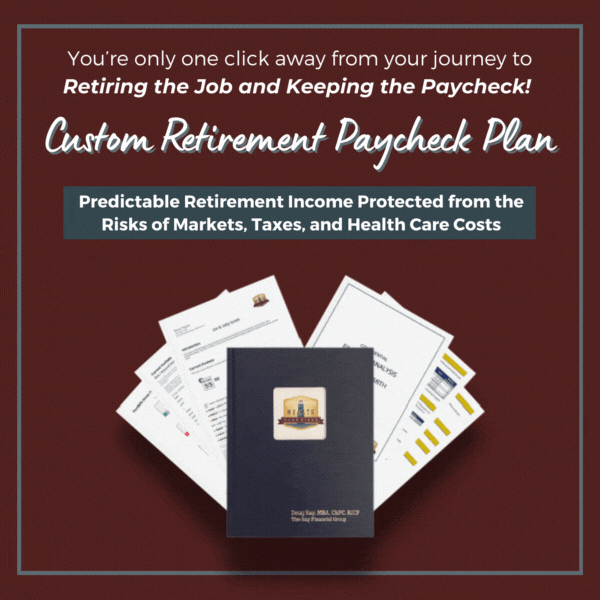 No matter how immersed you are in your nursing job amid a global pandemic, surely, you’ve noticed that the economy has been on shaky ground. With uncertainties swerving around day and night, many nurses are discouraged with their current jobs and find themselves in stressful situations. Others feel pushed out by their employers because of vaccine mandates and some are simply at retirement age.
No matter how immersed you are in your nursing job amid a global pandemic, surely, you’ve noticed that the economy has been on shaky ground. With uncertainties swerving around day and night, many nurses are discouraged with their current jobs and find themselves in stressful situations. Others feel pushed out by their employers because of vaccine mandates and some are simply at retirement age.
In fact, according to the American Association of Colleges of Nursing survey, half of RN’s are 50 years or older.1 However, retiring right away might not be a workable choice for every nurse. Sudden retirement could lead to an even worse situation if you haven’t planned ahead.
Here are 4-critical factors that nurses should consider when thinking about taking retirement:
- Assessing your financial health.
Whether your plan is to retire and relax on the beach with sandy feet kicked up, or transition to a new career, you need to affirm that you are ready for this kind of move.2 This is done by analyzing your finances.
Here are 3-easy steps to evaluate your current financial health:
- Determine your gross income.
Gross income represents your total salary and earnings. This information is typically provided with your monthly paycheck. - Calculate your net income.
Most of the time your net income is calculated or you. This is the amount you take minus taxes and any other deductions (like HSA, 401(k), dues, and so on). This is the amount you see on your paycheck. In order to establish the amount you will need annually you should calculate your net worth for a minimum of 12-months.
- Estimate your total monthly expenses.
Your monthly expenses can be calculated by adding up your fixed payments and flexible expenses. Some common examples of fixed payments include insurance, rent, and loan installments. Things like food expenses, the cost of recreational activities, and credit card payments – things that tend to vary each month – are referred to as flexible expenses.
Now What?
If the difference between your annual income and expenses is a positive number, then you may want to move forward with pursuing a nursing retirement plan. However, don’t forget to calculate your cash savings and retirement benefits thoughtfully before leaving the nursing profession permanently. You could also be hit with penalties if you take out retirement funds early.
If the difference between your net income and expenses remains negative for multiple months, you probably shouldn’t decide to retire immediately.
- Estimate your nursing retirement benefits.
Assessing your current financial health is simply a part of a workable nursing retirement plan. You should also estimate your retirement benefits offered by your employer, including 401(k) and 403(b), in addition to your current finances.
In addition to your current finances, you should also estimate retirement benefits offered by your employer, including pension, 401(k), and 403(b).
Your individual plans, such as IRA, HSA, and personal savings, could also come in handy when managing your post-retirement finances. Keep in mind that its never too late to start saving for your future, even if you haven’t begun investing in a retirement plan just yet.
Some of the more popular retirement plans include 401(k) and 403(b), pension, individual retirement account, health savings account, and Social Security benefits.
- Explore advanced nursing career opportunities.
If you are a nurse who’s considering retirement, but your salary isn’t high enough you can try to enhance your nursing skill set and explore better career opportunities. By earning a specialty certificate and/or continuing education credits can significantly improve your chances of securing a more advanced nursing role.
Advanced specialty roles, such as a Certified Registered Nurse Anesthetist, Nursing Administrator, Nurse Practitioner, Certified Nurse-Midwife, Nurse Instructor, and other advanced practice nursing roles, receive the highest pay of nursing jobs. 3
Another option may be finding a job in a higher-paying region, as the average nurse salaries can vary substantially in different parts of the country. But don’t forget to factor in the difference in the cost-of-living between regions in order to make a better-informed decision.
- Post-retirement nursing jobs.
The picture of life after retirement varies from person-to-person. Some people have been planning to fill their post-retirement life with fun activities for years, while others don’t plan for life after retirement and find themselves easily bored. Some even wish to go back to work and get back to a regular routine.
The good news is there are industry related job options for retired nurses such as a nurse bill auditor, freelance nursing writer, nurse teacher or educator, nursing licensure exams reviewer, just to name a few.
Wrap Up.
For nurses considering retirement can be overwhelming to think about. Leaving your current career is never an easy decision and should not be taken lightly, especially if you are considering retirement.
However, if you plan ahead, it can certainly be a great option. A retirement plan is more than forecasting lifetime expenses, maximizing Social Security, and building an investment strategy. It requires careful coordination of income, investment, tax, insurance, and legacy planning strategy. If any one of those components is inefficient, it’s costing you money and hurting your ability to retire with confidence. And that’s where The Wealth Guardians can help.
Our Custom Retirement Paycheck Plan shows how to protect your retirement from the risks of unexpected market swings, tax changes, and health care expenses using a mathematically tested strategy to create lifetime income allowing you to stop worrying about outliving your money and get on with enjoying the rest of your life.
Let us show you in black and white a custom retirement income plan that is comprehensive, individualized and based on strategies that balance growth with downside protection. Get your Custom Retirement Paycheck Plan now!
Give us a call at our Charlotte office at (704) 248-8549, or our Clemmons office at (336) 391-3409. Or, click here to request a no-cost, no-obligation meeting.
[SOURCES]
Adapted from original article: https://www.incrediblehealth.com/blog/nurses-considering-retirement/
- “Nursing Shortage”, aacnnursing.org. Accessed Mar 29. 2022.
- “Evaluating Your Finances.” practicalmoneyskills.com. Accessed Mar 29. 2022.
- “Highest-Paying Nursing Jobs In 2022”. Incrediblehealth.com. Accessed Mar. 29, 2022.




